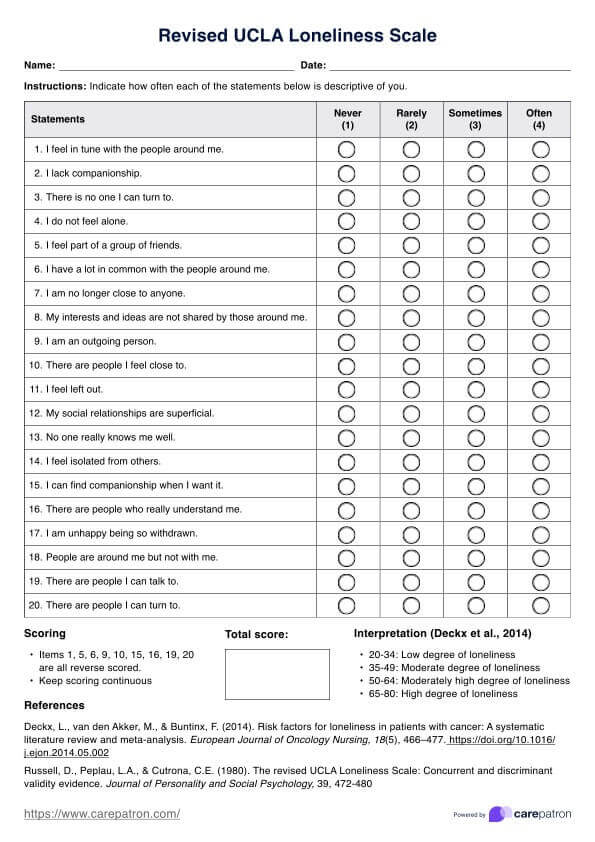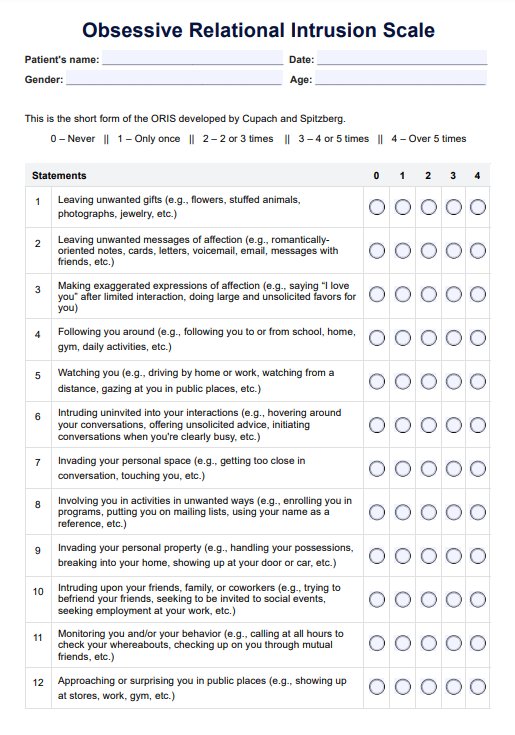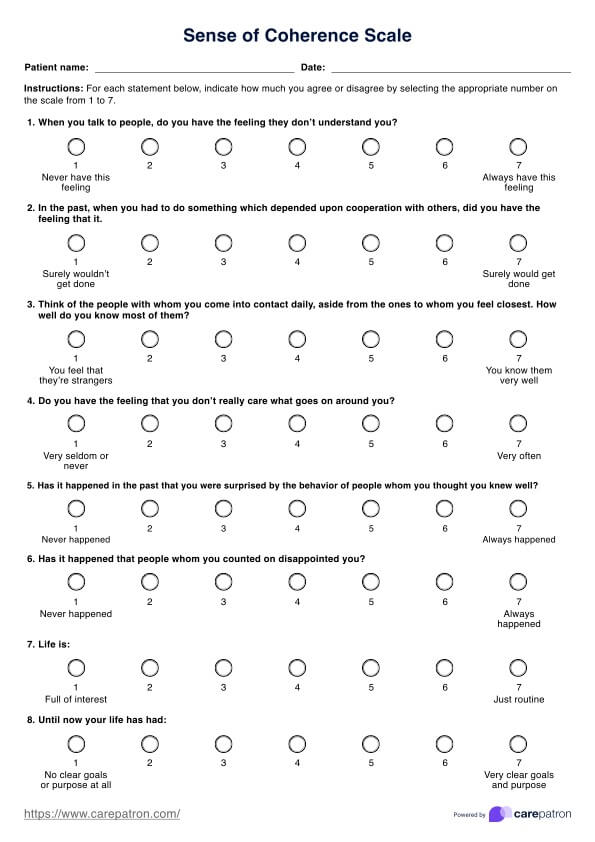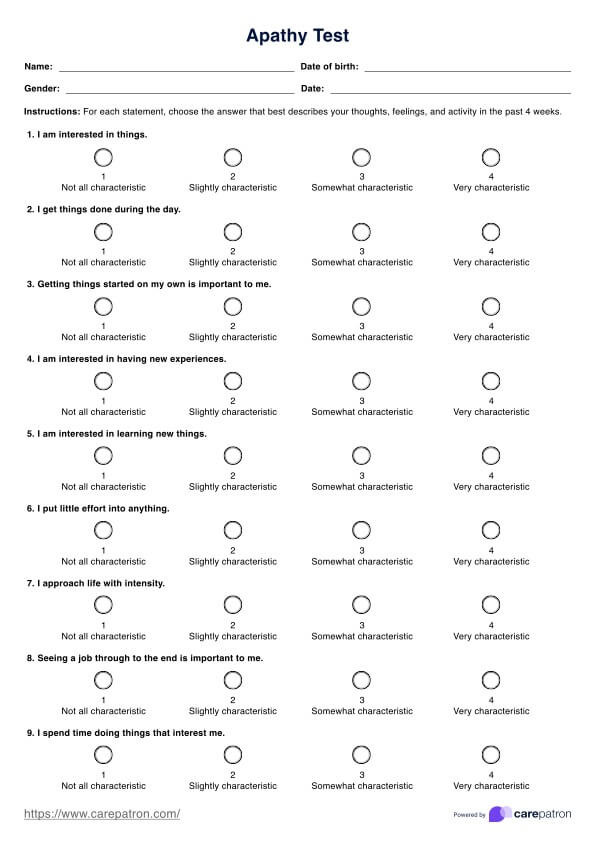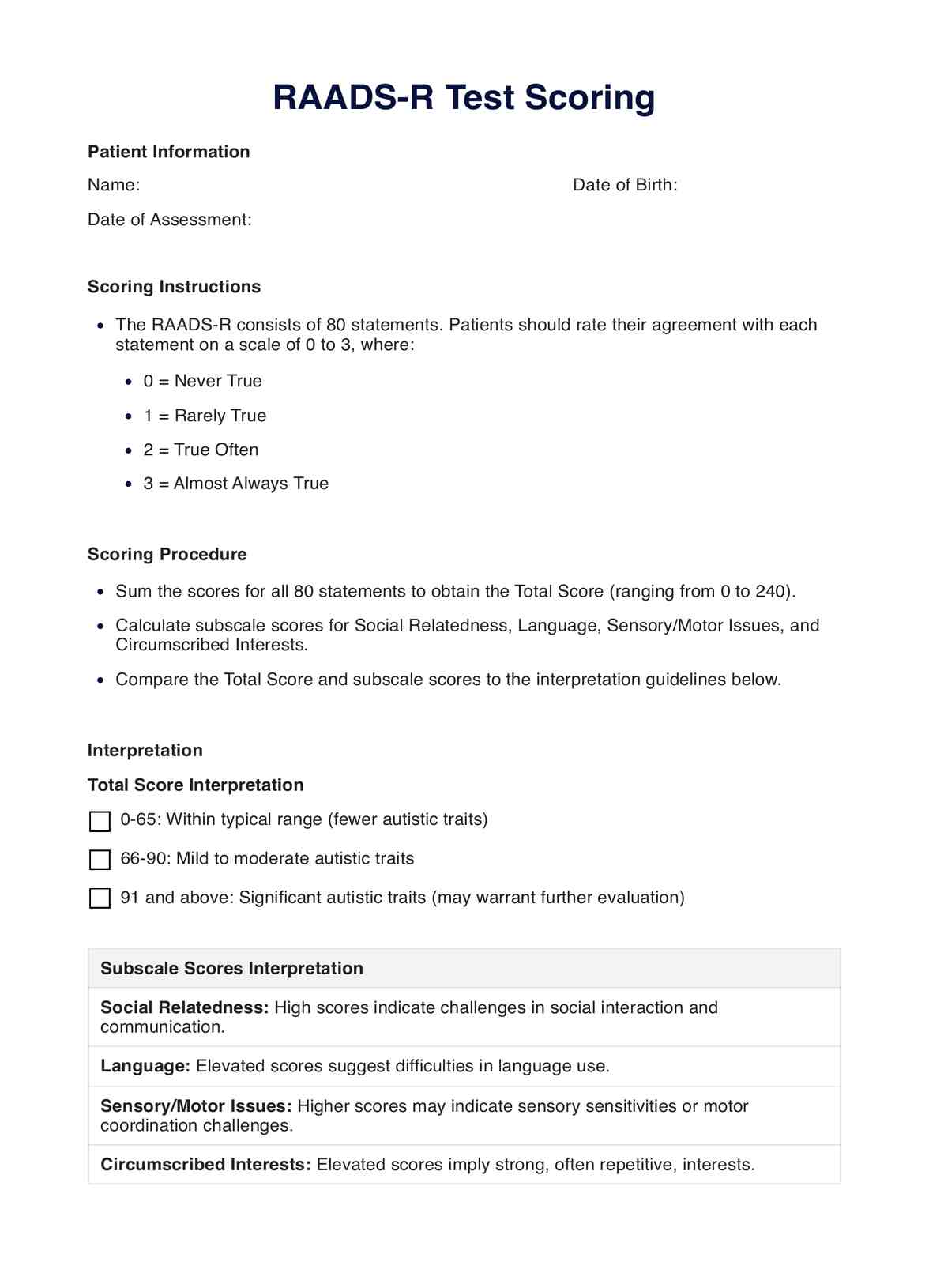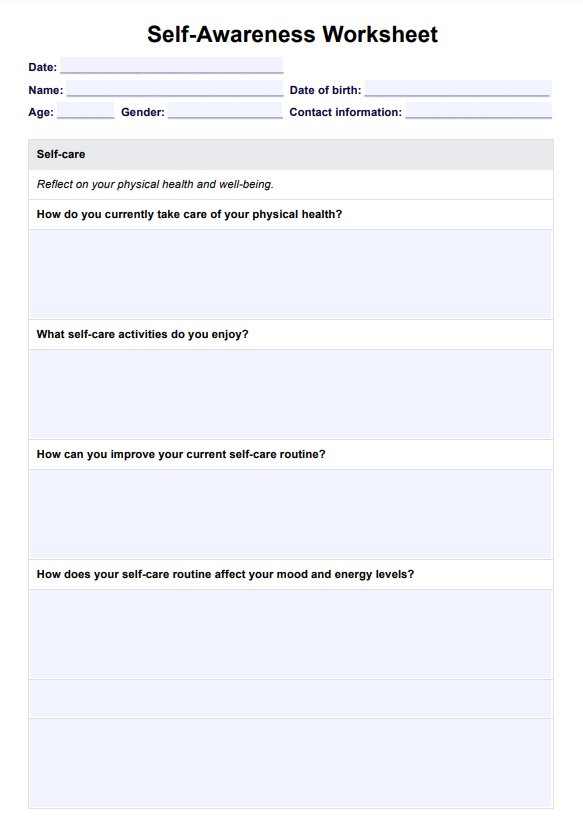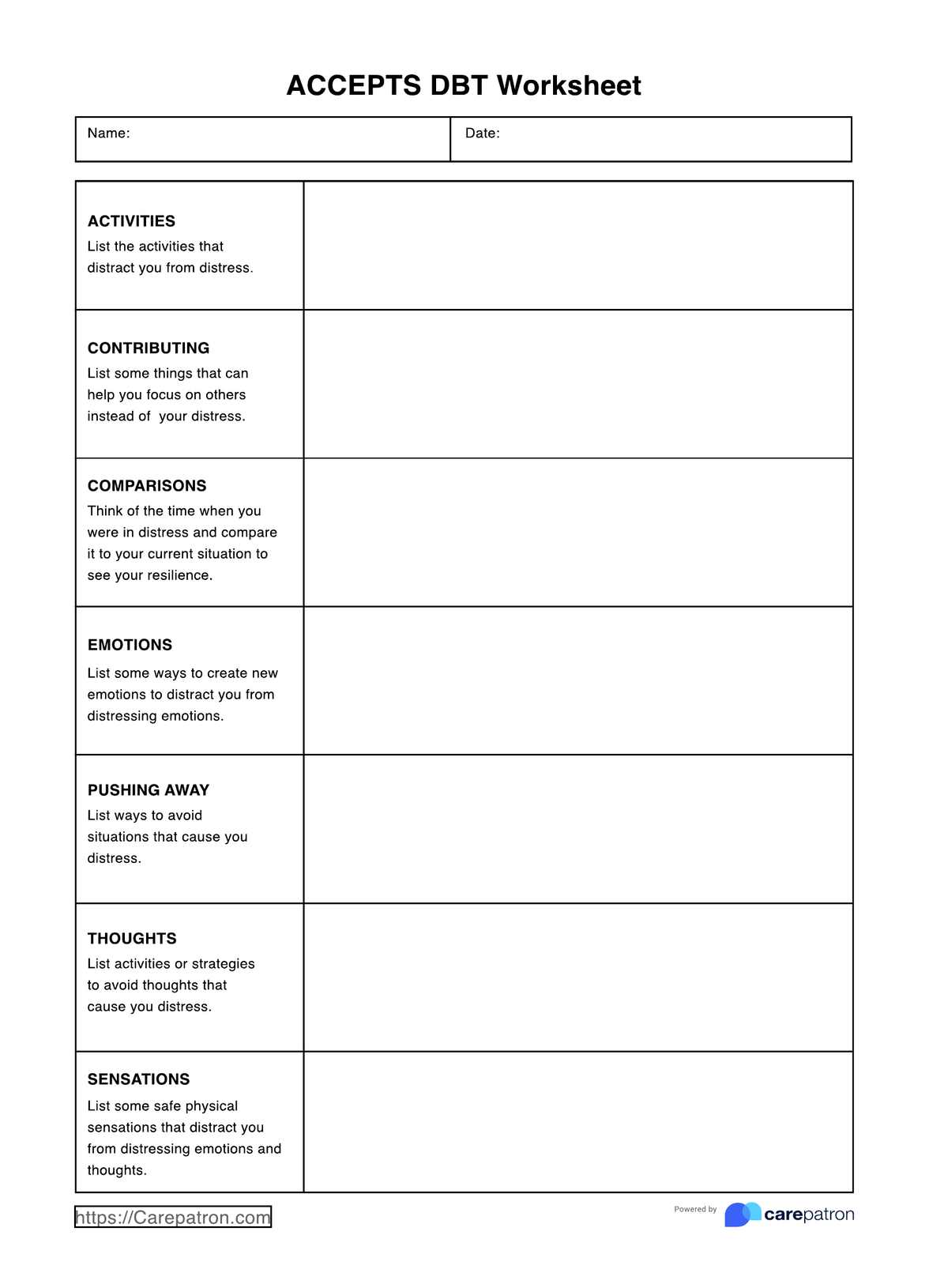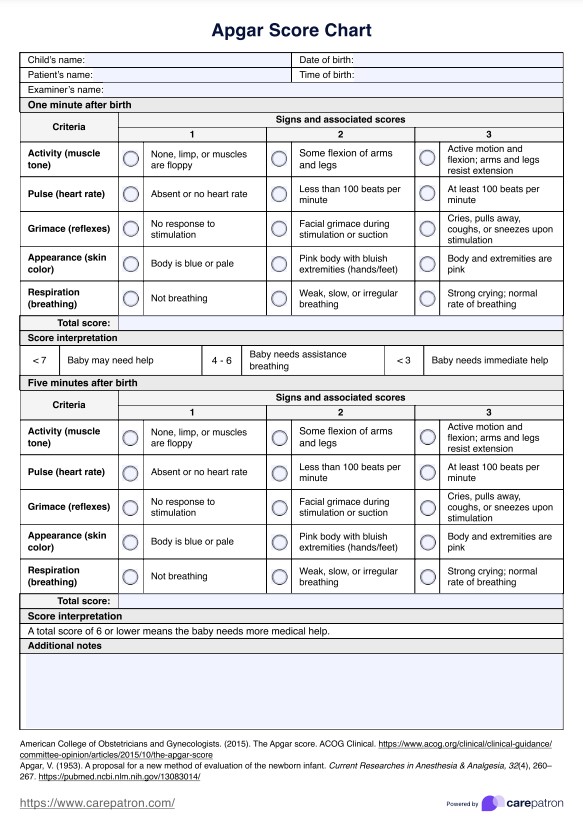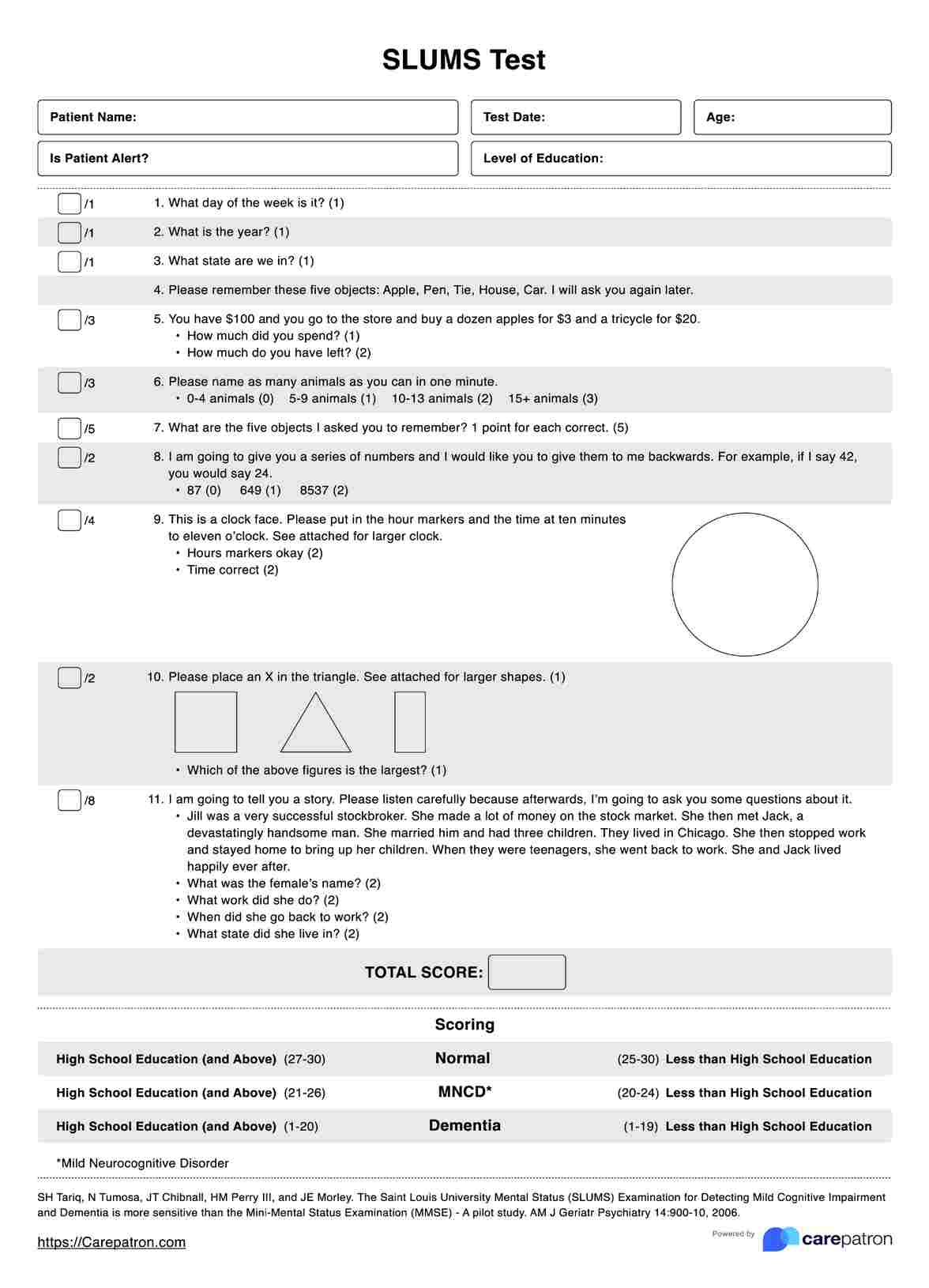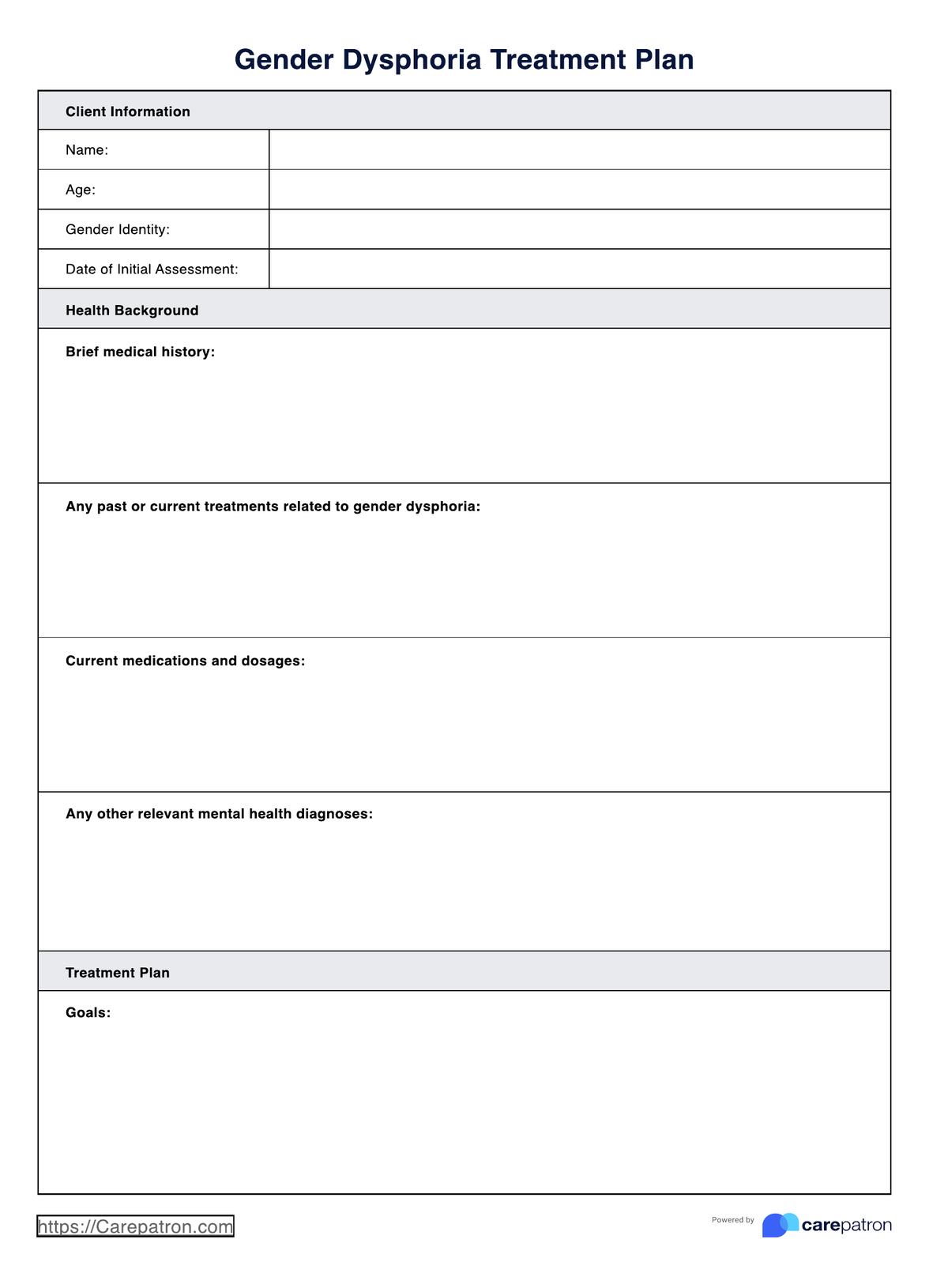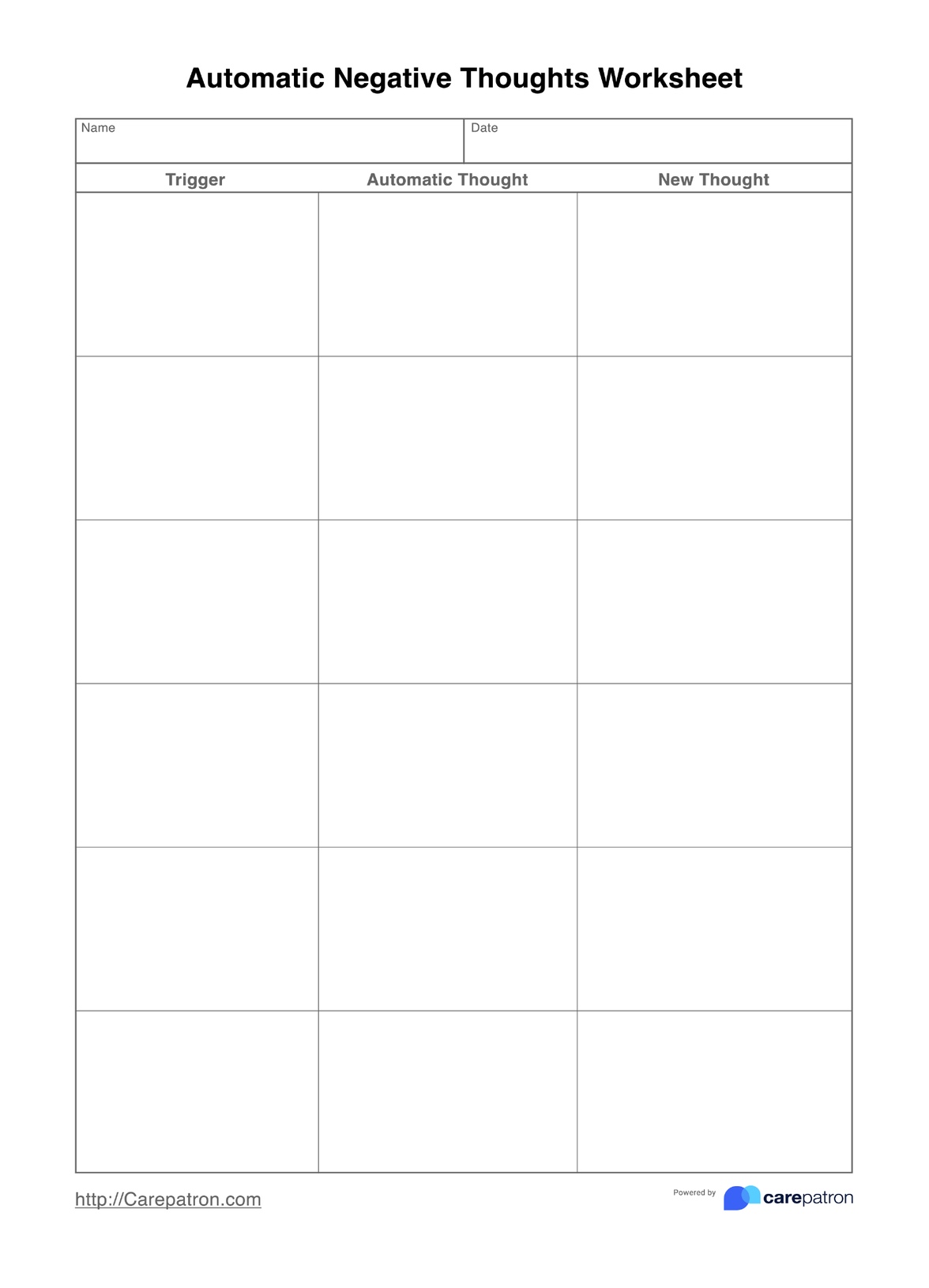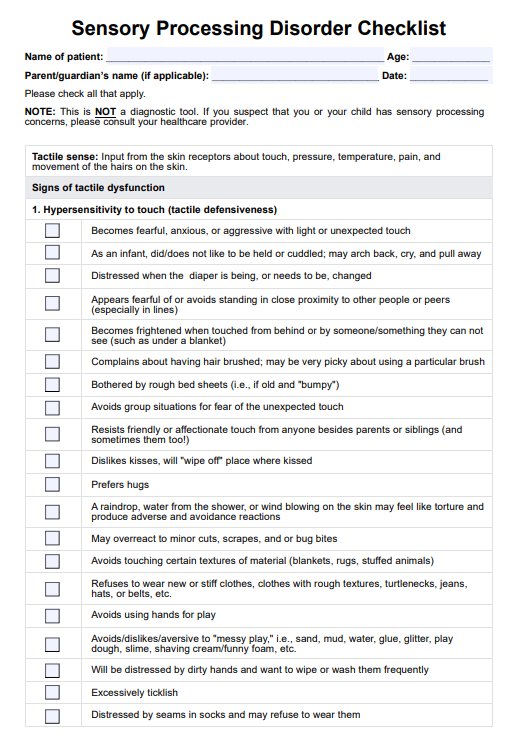Cognitive Remediation Therapy Referral Form
Get comprehensive cognitive remediation therapy with our referral form. Improve cognitive skills & regain mental sharpness. Start today!


What is Cognitive Remediation Therapy?
Cognitive Remediation Therapy (CRT) is a specialized therapeutic approach designed to address cognitive deficits commonly experienced by individuals with various neurological or psychiatric conditions. It is an evidence-based intervention focusing on improving cognitive functioning, enhancing daily functioning, and ultimately promoting a better quality of life for patients.
CRT employs a structured and systematic training program that targets specific cognitive domains, such as attention, memory, executive functions, and problem-solving skills. By utilizing a combination of computer-based exercises, group activities, and individualized training sessions, CRT aims to stimulate neuroplasticity and facilitate the development of compensatory strategies.
The therapy begins with a comprehensive assessment to identify the specific cognitive difficulties of each patient. This assessment helps tailor the therapy to meet the individual needs and challenges of the patient. Progress is regularly monitored throughout the therapy, allowing for adjustments and modifications to optimize outcomes.
One of the key principles of CRT is the transfer of skills learned during therapy to real-life situations. Therapists work closely with patients to help them generalize the newly acquired cognitive strategies and apply them in their day-to-day activities. Patients can regain independence, improve work or academic performance, and enhance social interactions.
Research studies have demonstrated CRT's effectiveness in various populations, including individuals with traumatic brain injury, stroke, schizophrenia, attention deficit hyperactivity disorder (ADHD), and autism spectrum disorder (ASD). The therapy has been shown to significantly improve cognitive functioning, attention, memory, problem-solving abilities, and overall functional outcomes.
Check out this video to find out more about our referral form templates:
Cognitive Remediation Therapy Referral Form Template
Cognitive Remediation Therapy Referral Form Example
How does this Cognitive Remediation Therapy Referral Form work?
The Printable Cognitive Remediation Therapy Referral Form is a valuable tool for healthcare practitioners to streamline the referral process and gather essential client information effectively. This form provides a comprehensive understanding of the client's cognitive difficulties, enabling appropriate treatment planning and intervention.
Using the referral form is a straightforward process, encompassing several key steps:
Client Information
The form begins by collecting essential client details, such as their name, contact information, and demographic data. This information ensures accurate identification and efficient communication.
Referral Information
Next, the form prompts the healthcare practitioner to provide relevant referral details, including their name, contact information, and affiliation. This section helps maintain a clear record of the referring party and facilitates follow-up communication.
Primary Reasons
In this section, the healthcare practitioner can tick the primary reasons for referral based on the client's cognitive difficulties. These reasons include paying attention, remembering, being organized, planning skills, problem-solving, and processing information. By identifying these primary concerns, the therapist gains valuable insights into the specific cognitive domains that require attention during therapy.
Secondary Reasons
The form also includes secondary reasons for referral, allowing the healthcare practitioner to assess additional areas of concern. These secondary reasons encompass self-confidence, working with others, time management, and goal-directed activities. Understanding these supplementary challenges aids in developing a holistic treatment plan.
By completing the Cognitive Remediation Therapy Referral Form, healthcare practitioners can gather crucial information for effective treatment planning. The form assists in identifying the client's cognitive deficits, guiding the therapist to tailor the intervention to their needs. This systematic approach enhances the therapy's efficacy and enables a targeted focus on improving attention, memory, organization, planning, problem-solving, and information-processing skills.
When would you use this Cognitive Remediation Therapy Referral Form template?
The Cognitive Remediation Therapy Referral Form template is a valuable tool that can be utilized in various healthcare situations to facilitate the referral process for individuals experiencing cognitive difficulties. Here are some of the best and most appropriate times to use this template:
Clinical Settings
Mental health professionals, psychologists, and psychiatrists can use the form when referring patients for cognitive remediation therapy. It is particularly helpful for individuals with traumatic brain injury, stroke, schizophrenia, attention deficit hyperactivity disorder (ADHD), and autism spectrum disorder (ASD).
Rehabilitation Centers
Healthcare practitioners working in rehabilitation centers can employ the form to refer patients who require cognitive remediation therapy as part of their rehabilitation program. This can include individuals recovering from brain injuries, neurological conditions, or cognitive impairments affecting their daily functioning.
Educational Institutions
School psychologists or educators may find the form useful for referring students who struggle with cognitive skills like attention, memory, or problem-solving. It can aid in addressing learning difficulties and improving academic performance.
Neurology Clinics
Neurologists or neurosurgeons can use the form to refer patients with neurological conditions that impact cognitive abilities. It helps in identifying specific cognitive deficits and guiding appropriate interventions.
The Cognitive Remediation Therapy Referral Form template efficiently collects client information and identifies primary and secondary reasons for referral. It is especially beneficial when targeted cognitive interventions are needed to improve attention, memory, organization, planning, problem-solving, and information-processing skills.
This template allows healthcare practitioners to streamline the referral process, ensure accurate information gathering, and facilitate effective treatment planning. It aids in creating a comprehensive understanding of the client's cognitive needs, allowing for personalized and targeted interventions to enhance cognitive functioning and overall quality of life.
What are the benefits of using this Cognitive Remediation Therapy Referral Form?
Streamlined Referral Process
The form simplifies and standardizes the referral process for cognitive remediation therapy. It ensures that all necessary client information is organized, saving time and effort for healthcare practitioners.
Comprehensive Client Assessment
By using the form, practitioners can gather essential details about the client's cognitive difficulties, including primary and secondary reasons for referral. This comprehensive assessment allows a more accurate understanding of the client's needs and informs treatment planning.
Targeted Treatment Planning
The form helps healthcare practitioners identify the specific cognitive domains requiring therapy attention. This information enables them to develop targeted treatment plans that address the individual's unique cognitive challenges and goals.
Effective Communication
The standardized format of the referral form ensures clear and concise communication between healthcare practitioners. It allows for the seamless transfer of client information and referral details, facilitating collaboration and continuity of care.
Improved Treatment Outcomes
The form assists in creating a holistic view of the client's cognitive difficulties, enhancing the therapist's ability to tailor interventions accordingly. This personalized approach increases the likelihood of positive treatment outcomes and improved cognitive functioning.
Documentation and Monitoring
The form provides a documented record of the referral process and client information. It enables practitioners to track progress over time, make necessary adjustments to the treatment plan, and monitor the effectiveness of cognitive remediation therapy.
Commonly asked questions
While the form provides valuable information about the client's cognitive difficulties, there are other substitutes for a comprehensive assessment. It serves as a starting point to gather initial information and guide the referral process for Cognitive Remediation Therapy.
The form is a tool for gathering information and facilitating the referral process. However, Cognitive Remediation Therapy as an intervention has substantial evidence supporting its effectiveness in addressing cognitive deficits in various neurological and psychiatric conditions.
The Cognitive Remediation Therapy Referral Form can be used alongside other assessment tools to understand the client's cognitive difficulties comprehensively. It can complement and inform the overall assessment process.
The Cognitive Remediation Therapy Referral Form is often available as a free downloadable template. However, any associated costs may depend on factors such as printing or digital management of the form.


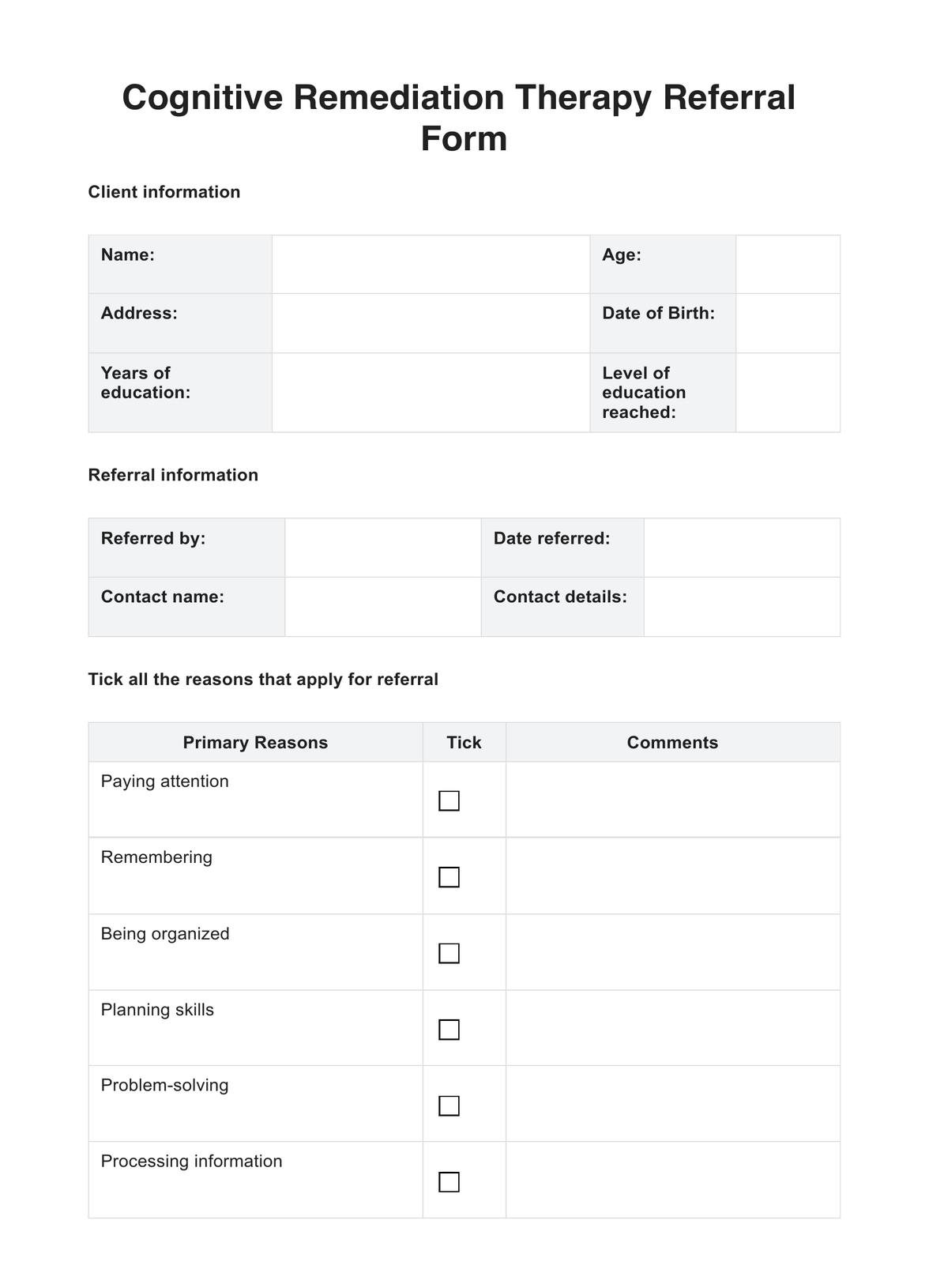
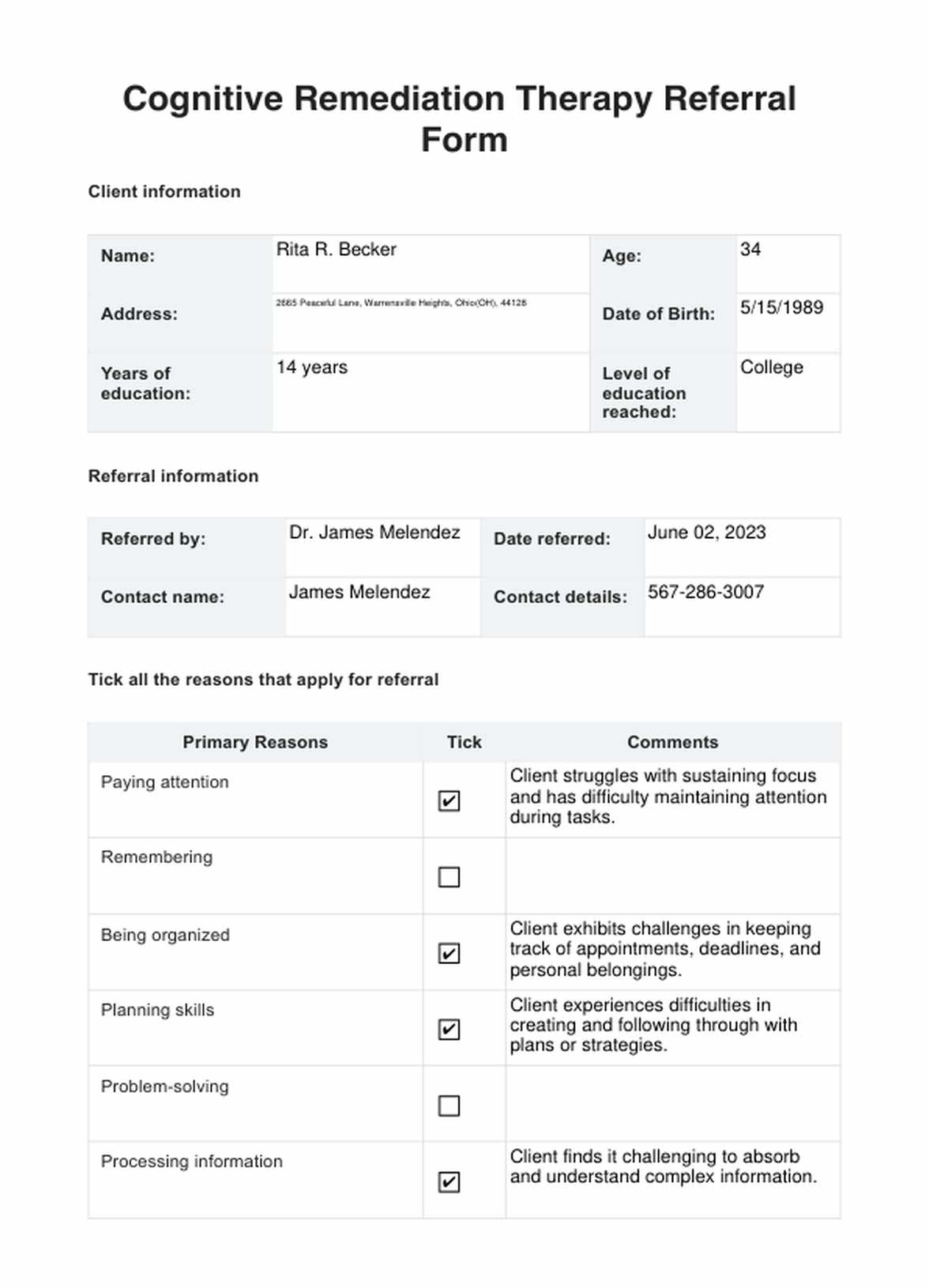

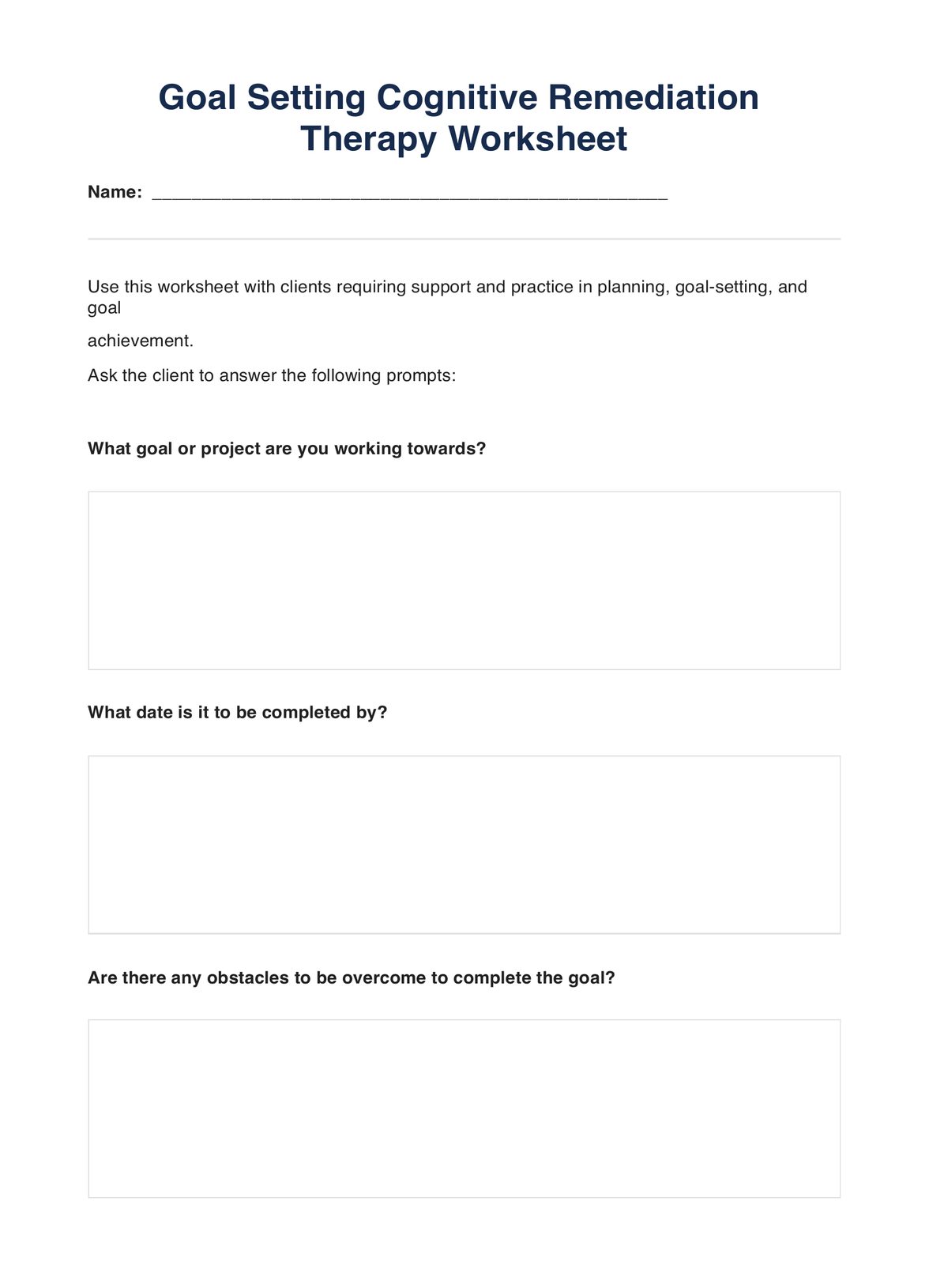
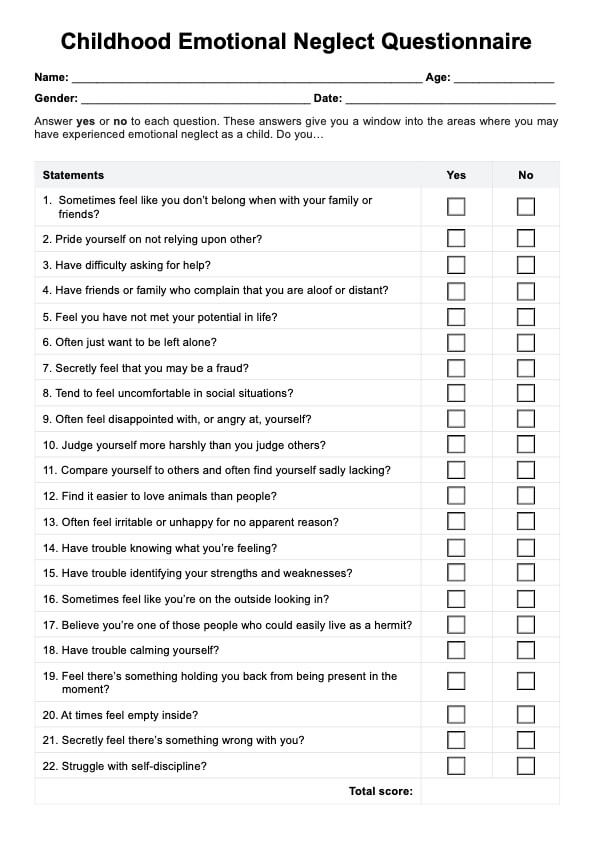
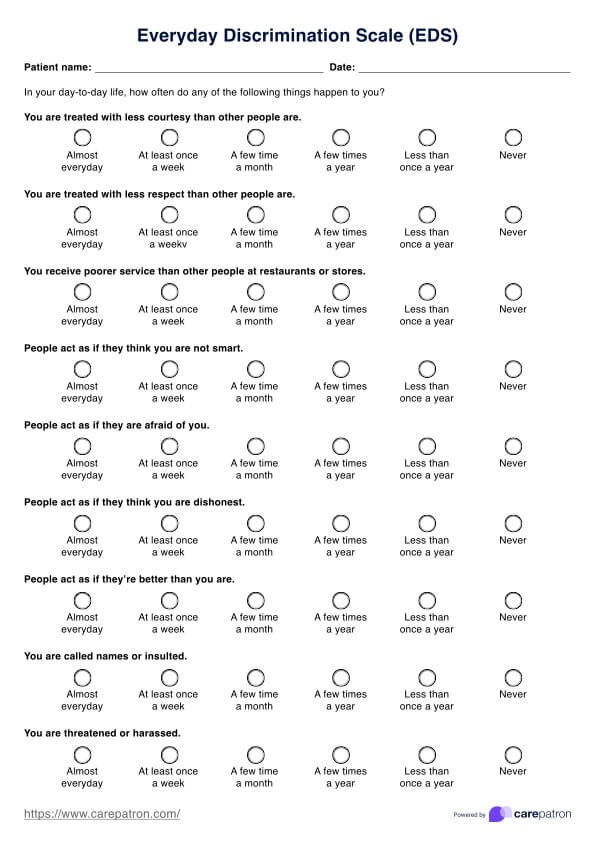
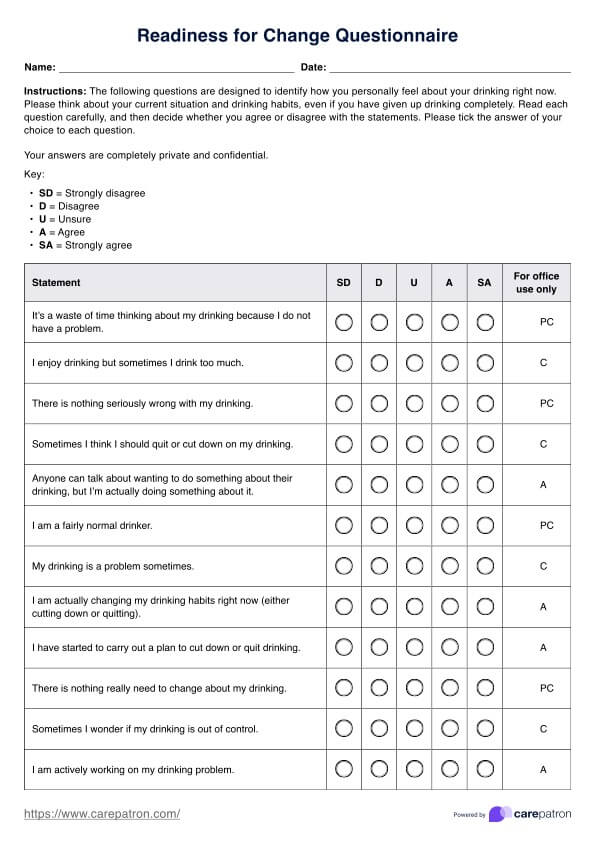










-template.jpg)

















































































